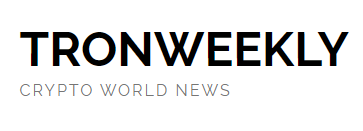You are here: Home / News / Legal Victory for Tornado Cash: Court Overturns Harsh OFAC Sanctions

January 22, 2025 by Mwongera Taitumu
- U.S. District Court reverses OFAC sanctions against Tornado Cash.
- Developer Pertsev remains under arrest for money laundering.
- Ruling signals potential shift toward innovation-friendly crypto regulation.
A U.S. District Court has ruled in favor of Tornado Cash, overturning sanctions imposed by the Treasury Department in 2022. However, developer Alexey Pertsev continues to face charges of money laundering in the Netherlands.
U.S. Court Reverses Sanctions Against Tornado Cash Protocol
The U.S. District Court for the Western District of Texas has reversed sanctions against Tornado Cash, a cryptocurrency mixing protocol. This ruling comes after the U.S. Treasury’s Office of Foreign Assets Control (OFAC) imposed sanctions in August 2022. OFAC had accused Tornado Cash of assisting North Korea’s Lazarus Group in laundering more than $455 million worth of stolen digital assets.
 Legal Victory for Tornado Cash: Court Overturns Harsh OFAC Sanctions 3
Legal Victory for Tornado Cash: Court Overturns Harsh OFAC Sanctions 3The court’s ruling marks a major victory for privacy-focused technologies, which have been under scrutiny in recent years. Experts view the ruling as a potential shift in crypto regulation toward more innovation-friendly policies. The reversal signals a change in the way authorities handle decentralized platforms and privacy-focused technologies in future.
Tornado Cash’s legal battle highlights the ongoing debate over responsibility in decentralized systems. Tornado Cash is a decentralized, non-custodial service that enables users to mix cryptocurrency transactions for privacy reasons. However, the service has been linked to illicit activities, raising concerns among regulators about its potential to facilitate money laundering.
No Reprieve For Tornado Cash Developer
However, Tornado Cash developer Alexey Pertsev remains under arrest in the Netherlands. Pertsev faces money laundering charges from the operation of the service. He was convicted in the s-Hertogenbosch Court of Appeal and sentenced to five years and four months in prison for allegedly laundering $1.2 billion worth of illicit assets.
Pertsev argues that he should not be held accountable for the illegal activities conducted by users of the Tornado Cash protocol. He argues that the platform, being non-custodial, did not control or hold the funds in question. However, the court rejected his defense, stating that if the developers truly wanted to prevent criminal misuse, they should have implemented additional security measures.
Reversal of OFAC Sanctions Could Shape Crypto Regulation
The reversal of the sanctions against Tornado Cash could set a precedent for future legal battles involving privacy-oriented technologies. The court’s decision might encourage other innovators in the crypto space to continue developing privacy-focused solutions without the fear of similar sanctions. However, Pertsev’s legal challenges demonstrate that crypto developers are not out yet of legal risks.
The future of decentralized finance and privacy protocols remains uncertain in the legal landscape. However, the balance between protecting privacy and preventing criminal activity will continue to shape the future of crypto regulation.

 9 months ago
50
9 months ago
50




 English (US) ·
English (US) ·